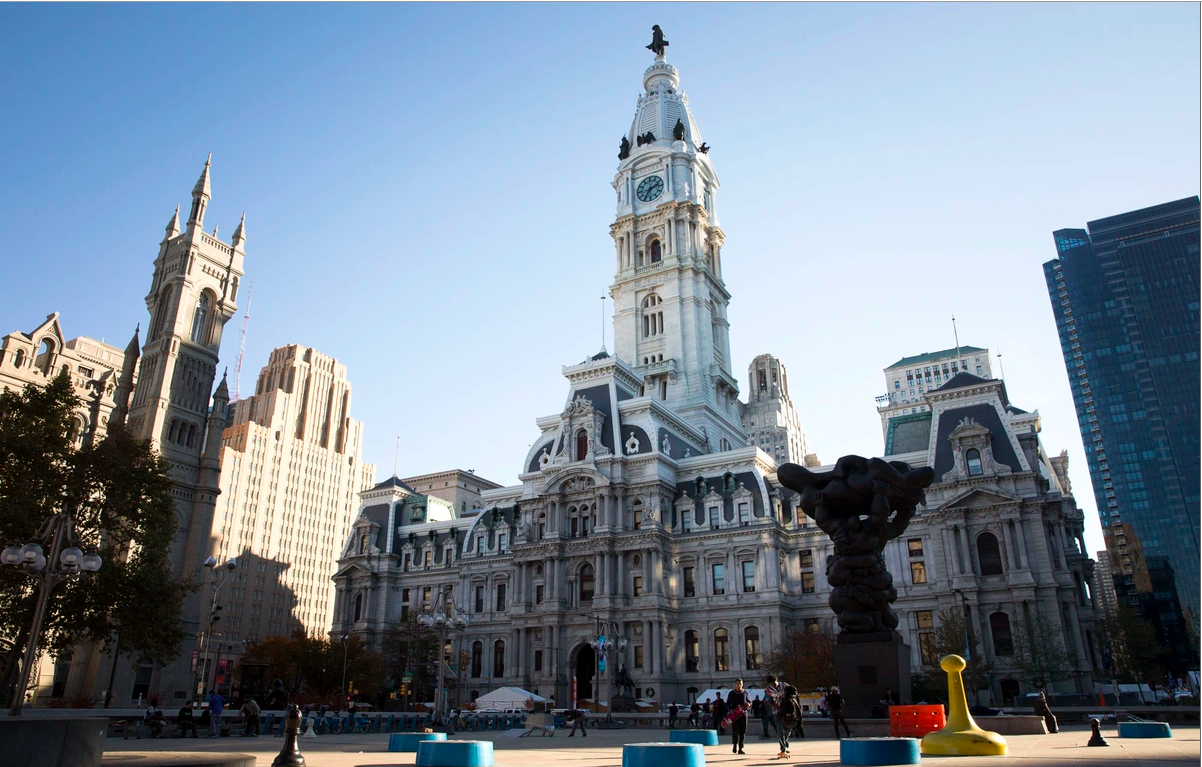
Philadelphia City Council's first public hearings on Emergency Housing Protection Act see some tenants and landlords unite
The package of bills will have another public hearing session on June 5 and potentially be voted for presentation in front of City Council at-large.
Evictions in Pennsylvania may be off limits until July 10, but that date is quickly approaching. For the members of City Council behind the Emergency Housing Protection Act (EHPA), it represents the beginning of yet another crisis.
Not a pandemic, not a social uprising, but a mass-eviction crisis.
Councilmember Helen Gym, one of three councilmembers introducing bills as part of the EHPA, warned of an “avalanche of evictions” when PA’s moratorium on evictions ends in a little more than a month.
“If we don’t act, people buried under mountains of debt will lose their homes before they have a chance to rebuild their income,” she said, “and landlords can’t collect rent from people who are unemployed and homeless.”
Gym is joined by councilmembers Kendra Brooks and Jamie Gauthier in introducing bills as part of EHPA.
Brooks’ bills put a rent freeze in place for the duration of the pandemic emergency order and for a year after, and prohibit landlords from charging late fees on rents during the pandemic and for two months after.
Gauthier’s would allow renters with financial hardship to pay rent over an extended period of time, and provide protections for renters against illegal landlord lockouts.
Gym’s institute an eviction diversion program where renters and landlords can create individual pay back plans and prevent evictions during the pandemic and for two months after the emergency order is lifted in Philadelphia.
EHPA was announced back on May 1, and held its first public hearings on May 29 as part of the weekly meeting for the Committee on Housing, Neighborhood Development and Homelessness.
The three councilmembers proposing the act were joined in the virtual meeting members of the public and a host of other colleagues in support of the package, including councilmembers Curtis Jones Jr., María Quiñones-Sánchez, Cindy Bass, Mark Squilla, Allan Domb and Katherine Gilmore-Richardson.
Retired Philadelphia Judge Annette Rizzo drew bleak comparisons between this pending housing crisis and the one that occurred in 2008 after the subprime mortgage collapse.
“It’s déja vú all over again, but it’s worse,” she said, citing one of the many famous sayings of Yankees legend Yogi Berra.
Back in 2008, Rizzo was part of the committee that put together Philadelphia’s mortgage diversion program in seven weeks to help Philadelphians avoid foreclosure. Twelve years later, it’s still an important program keeping them housed and has been emulated in cities throughout the country.
Rizzo said EHPA could have the same impact during the COVID-19 crash.
In the meantime, many renters are facing aggressions from impatient, indifferent landlords.
Maria, an immigrant renter and member of Juntos, told a story of how her landlord forced his way into her home to threaten her with eviction. As a result of coronavirus, she’s lost most of her hours as a domestic worker in the city.
“He would not leave until the police arrived,” she said. “This is the first time I am sharing my story publicly, because I know I’m not the only person experiencing this.”
RELATED CONTENT
Despite the stories of landlord aggression, there were also landlords on the call in support of the bill benefiting their tenants.
Bethany Rusen, a business owner and small-time landlord with two properties in West Philadelphia said even in the economic downturn, she had options and savings.
A common argument against tenants who can’t pay rent is asking why they aren’t responsible with their money and saving it. Rusen flipped that argument on its head, asking why “do you as professional landlords, not have savings?”
Councilmember Curtis Jones Jr. was also keen to point out that EHPA was not an anti-landlord piece of legislation, urging against their vilification.
“You can be for a cause and not create an enemy,” he said.
The first hearing also brought good news for tenants and landlords alike, as the state legislature approved $175 million in federal COVID-19 relief funds to go towards rent and mortgage assistance across Pennsylvania.
Pennsylvanians unemployed after March are eligible for rent assistance of up to $750 per month for up to six months. Households suffering a 30% or more loss of income because of the COVID-19 shutdowns are also eligible for relief. The Pennsylvania Housing Finance Agency (PHFA) will distribute the funds.
“Housing is essential, there’s no doubt about that,” said state rep. Jordan Harris, who also joined the call on May 29.
EHPA goes for another public hearing session on June 5, 2020. The Committee on Housing, Neighborhood Development and Homelessness will also vote on sending the package to be presented to City Council at-large.

This article is part of Broke in Philly, a collaborative reporting project among more than 20 news organizations, focused on economic mobility in Philadelphia. Read all of our reporting at brokeinphilly.org.











LEAVE A COMMENT: